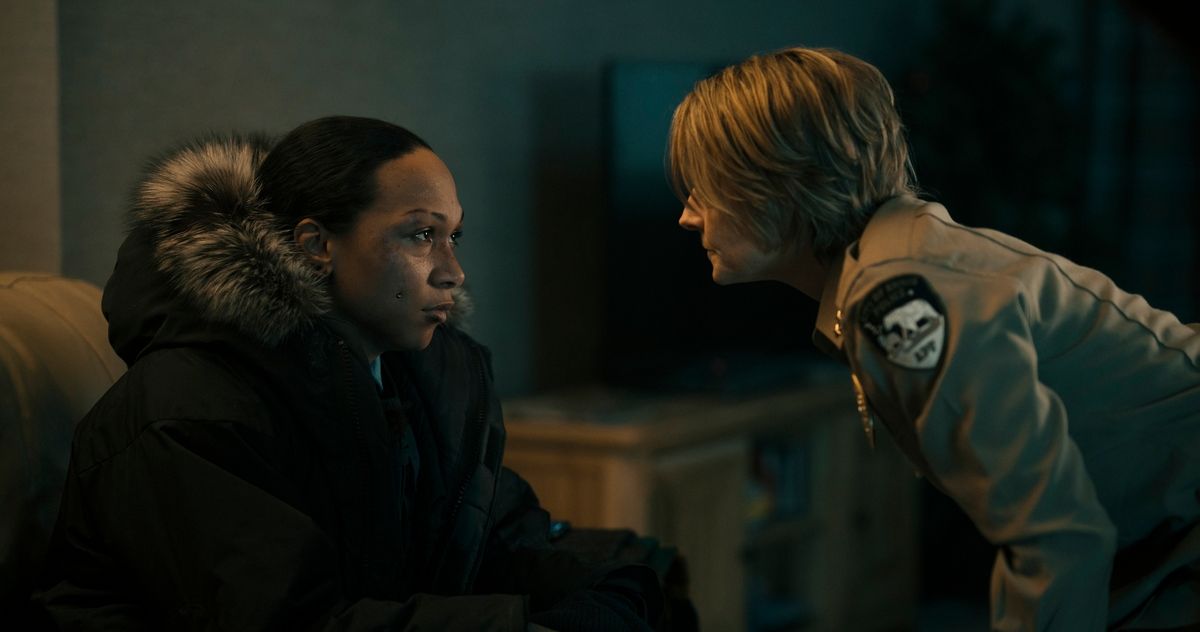
As a Virgo, I’m all about order. As a kid, I created my own card catalog for my collection of books, as if I were a library. I still alphabetize and catalog all of my music on Discogs. Even my Emmy notes are neatly organized by year, going all the way back to 1996.
That’s why I wasn’t happy in the late 1990s when hourlong shows like “Ally McBeal” and “Desperate Housewives” entered (and won, in some cases) the Emmy comedy race. Hourlong dramedies are not comedies! No one ever called “All in the Family” — which had some deep, dark moments — a drama, and yet there were a couple of laughs in “Desperate Housewives” (which opened with a death!) and suddenly it’s a comedy?
Sadly, I lost this battle years ago. And as we know, the comedy race is really now a dramedy race. The frontrunner, FX’s “The Bear,” is famously an anxious and often dark show. (For some reason, I’m fine with it being in comedy. I am unpredictable.)
Those were the early days of gaming the Emmys. Later, it was all about shows like PBS’ “Downton Abbey” entering the miniseries (as they were called then) field — and then suddenly being picked up for another season and moving to drama. HBO’s “Big Little Lies” and “The White Lotus” also did the limited series-to-drama-series transition. Elsewhere, there was plenty of outcry when some of Netflix’s “Black Mirror” episodes found their way into (and won) the TV movie competition — leading to the TV Academy redefining how long a “TV movie” can be. And so on.
But I’m not sure we’ve ever seen category confusion on the level of this year. Some of it comes from strategy, but it’s also not always easy to pick a lane when genres are so blended these days. There’s no quick answer: After complaints that contenders were going category shopping, for several years the TV Academy had a rule that half-hour programs were comedies and hourlong shows were dramas. But that stipulation was ultimately seen as too confining, and once again anything goes.
The Oscars have never divided comedy and drama — but I don’t know if that’s the answer either, since comedic films rarely win the best picture prize. Probably the bigger question of the moment, given how competitive the limited or anthology series competition is this year, is … what exactly is a limited series?
As Variety awards guru Clayton Davis has reported, sometimes strategy comes up against TV Academy rules. AMC had planned to submit “The Walking Dead: The Ones Who Live” in the limited or anthology series category. But given that the show revolves around two of the main characters from “The Walking Dead,” Rick (Andrew Lincoln) and Michonne (Danai Gurira), it was deemed ineligible there. That’s because a limited or anthology series must feature a story contained to that season, without any ongoing storylines.

Last week, FX said that it was exploring additional seasons of “Shogun” — originally announced as a limited series — moving it to the drama category. Meanwhile, HBO’s “The Sympathizer” and Apple TV+’s “Masters of the Air” flirted with the idea of entering the drama race, but ultimately decided to remain in the limited series field. Then there are the “anthology” shows that, yes, contain standalone seasons and characters. But these are still TV series: “True Detective” was originally submitted (and earned noms) in Season 1 as a drama, before switching to limited/anthology. And yet, it has a certain tone that carries throughout, right up through the latest “Night Country” installment. “American Horror Story” eventually had to switch to drama because its “anthology” began to incorporate too much from past seasons.
The fact that so many shows could jump between limited/anthology and either drama or comedy (and have!) makes me wonder: Have we moved past the point of “limited” making sense as a category? Remember when “miniseries” used to be a particular kind of longform? Now, we’re just putting more TV shows in the limited category when they could just as well be in the drama field.
In the streaming age, most shows might be considered limited — airing between six and eight episodes a season, and lasting one to three seasons at most. “Limited” is not a genre, and it sometimes feels like it has simply morphed into another “outstanding drama” category. Try to define a “limited” series: You can’t really, right? Such classification feels so, well, limiting.

